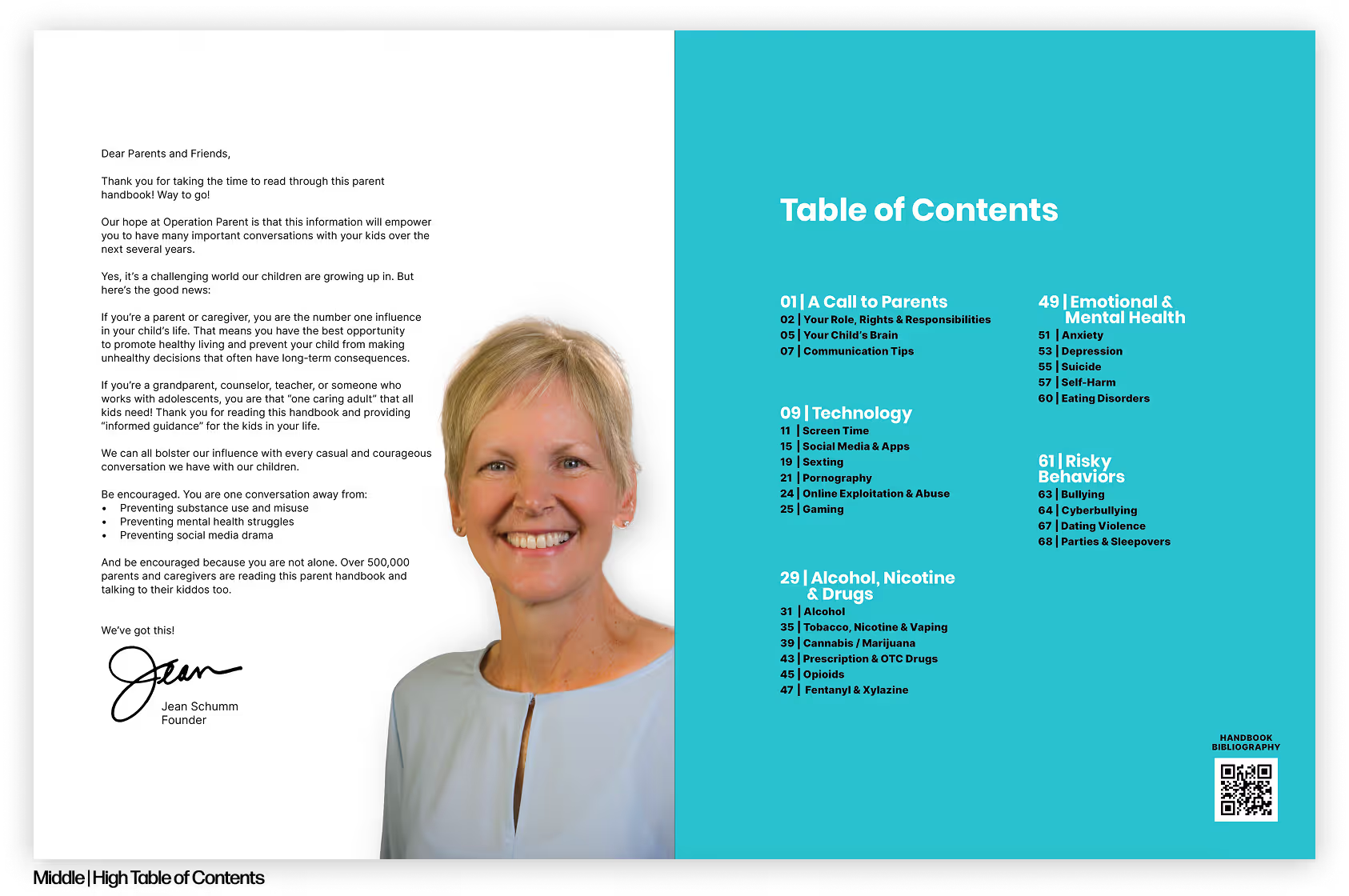
home
parent handbook chapters:
at a glance
We’re so glad you’re here! As you glance through this Parent Handbook preview, we hope you get a clear picture of how Operation Parent supports families every step of the way.
Inside, you’ll find practical tools and trusted information on issues like technology, mental health, and substance use, along with encouragement to help you feel more confident having those casual & courageous conversations. Simply scroll through to get a glimpse of each of our handbook chapters!


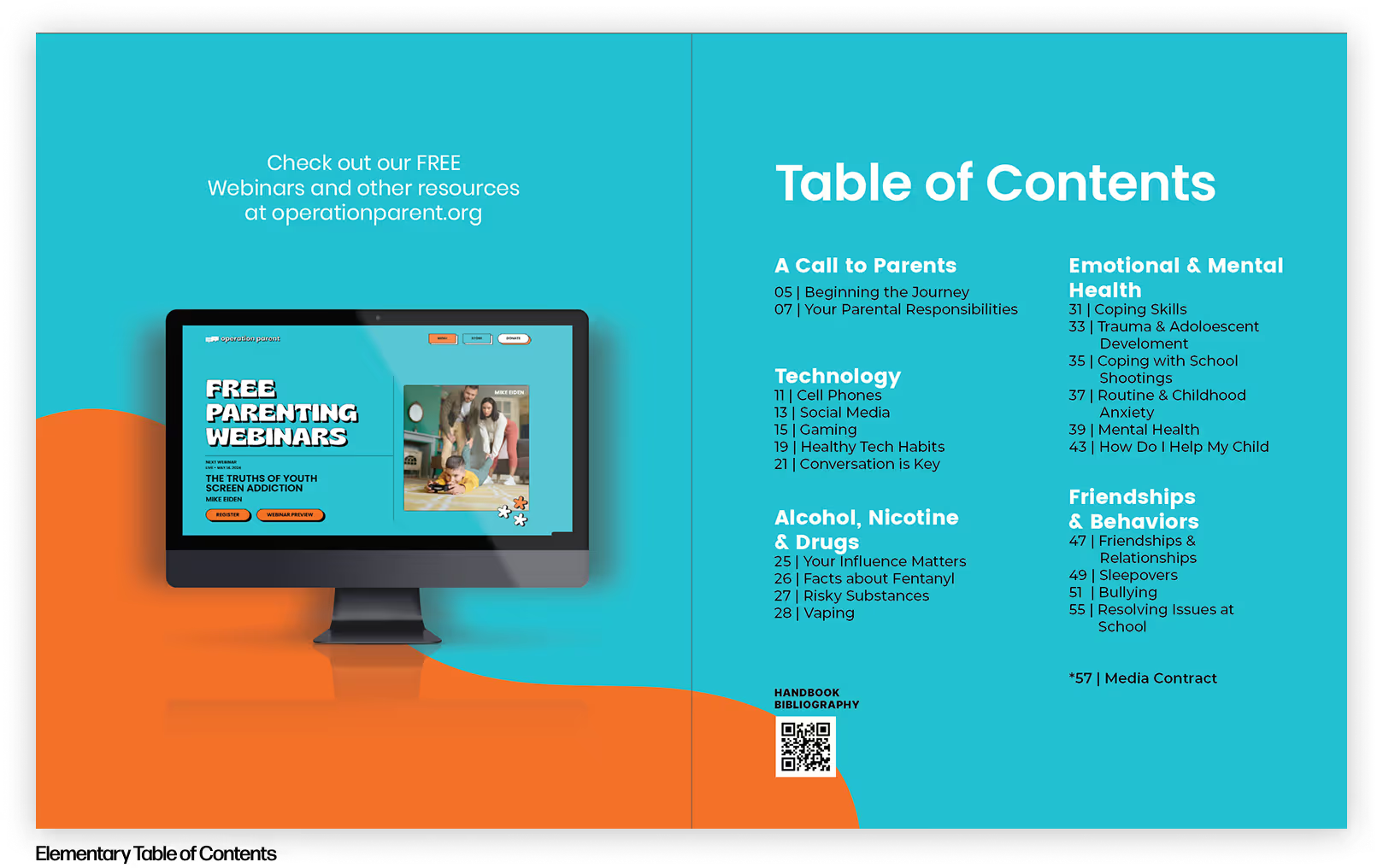
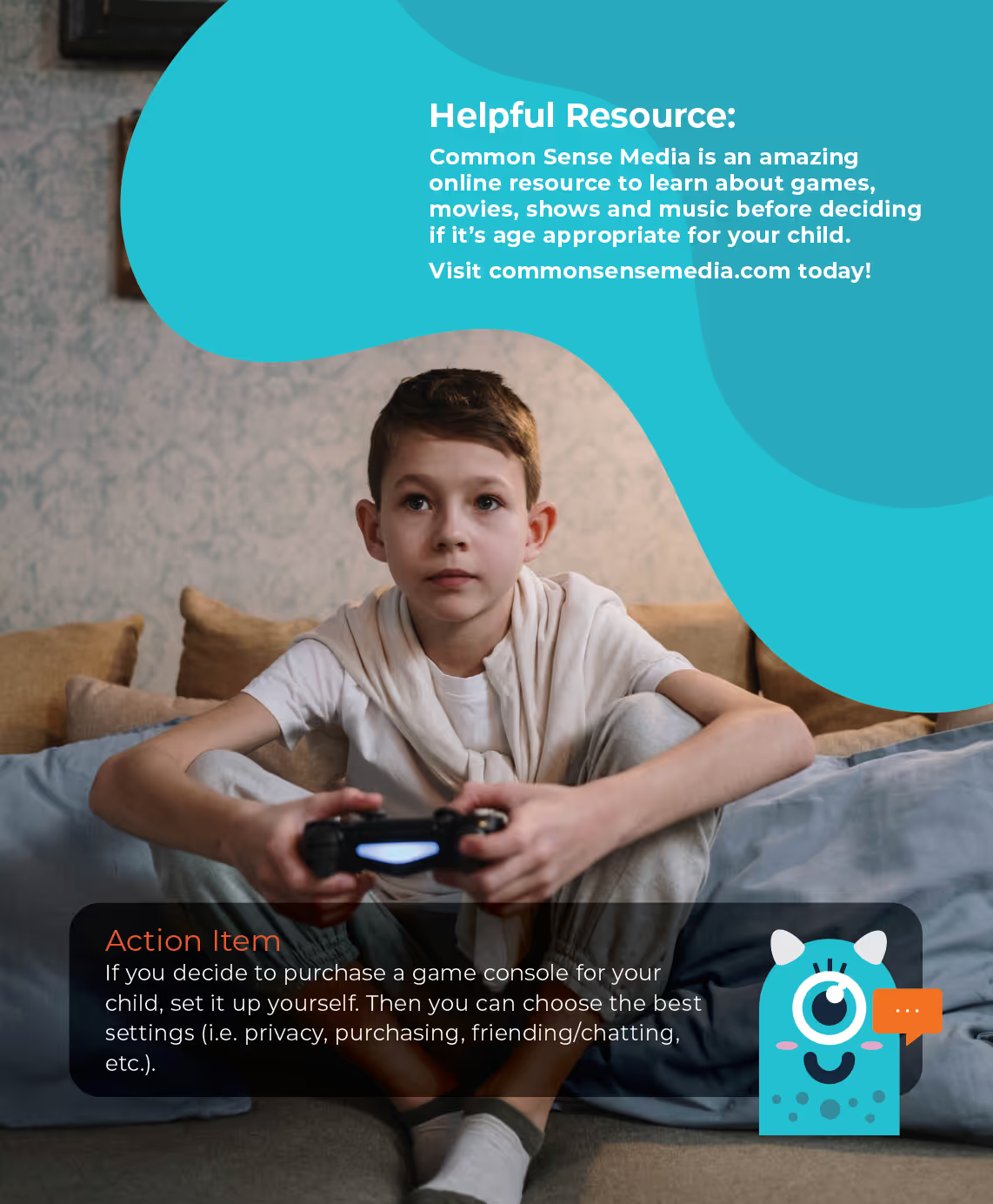
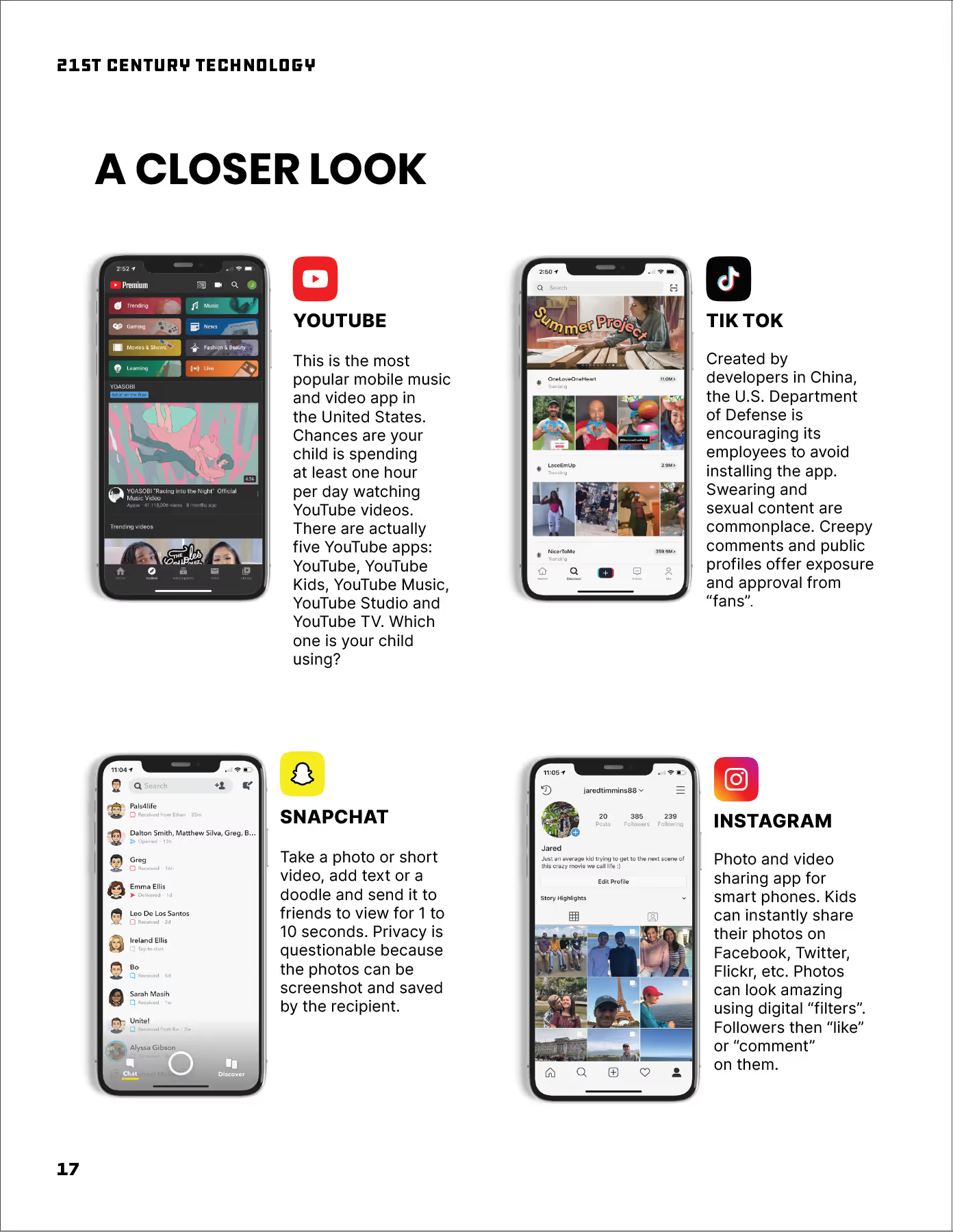
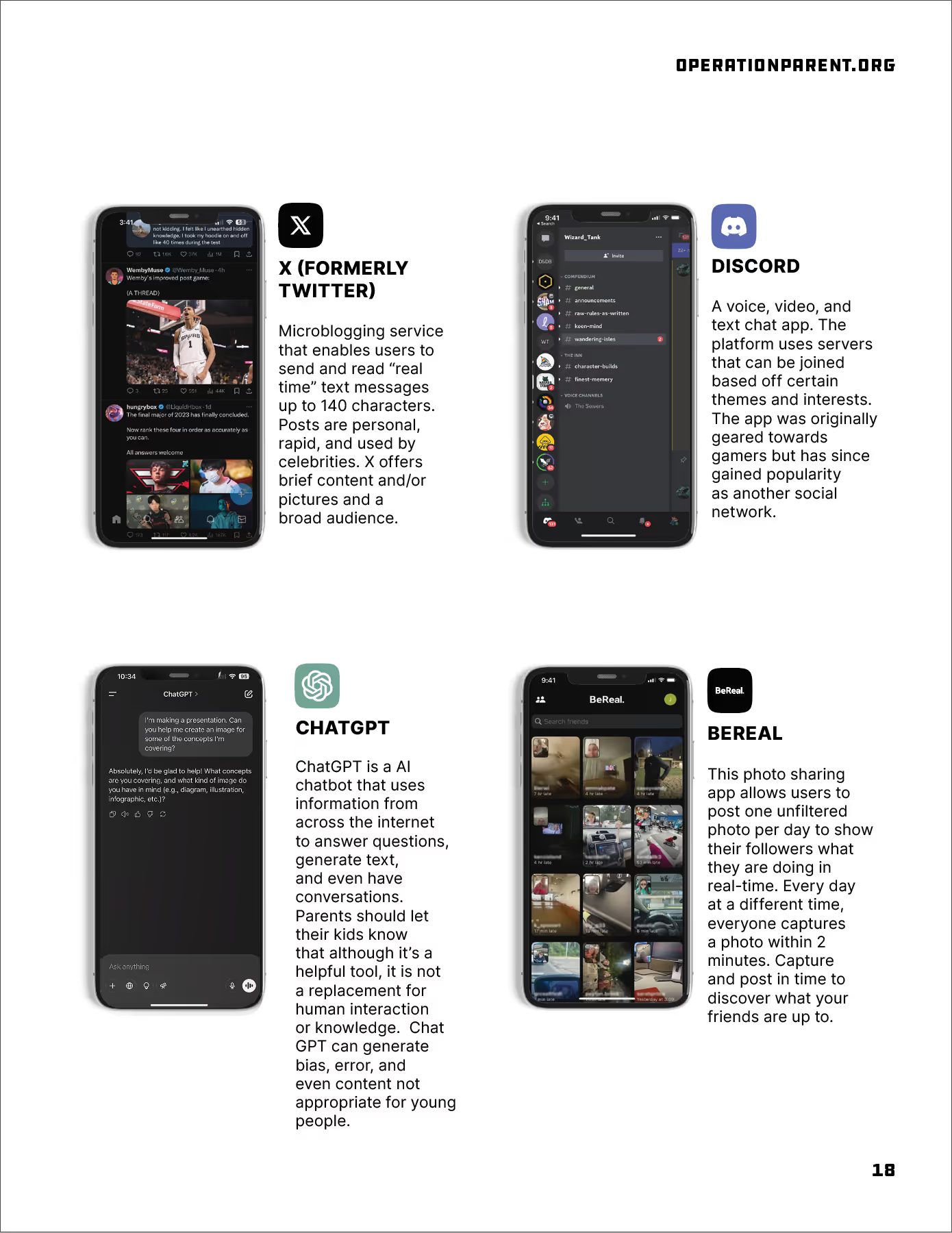
A Call to Parents
Parenting today can feel overwhelming, but you are not powerless. This opening chapter reminds you that you are the most important influence in your child’s life and equips you with practical rights and responsibilities to help keep them safe. Prevention starts here—with your awareness, presence, and willingness to have courageous conversations.
"Research shows parents are the #1 influence on a child’s decisions about substances — more than peers, teachers, or media."
Why it matters: Even when it feels like kids aren’t listening, your voice and values make the biggest difference. The part of the brain that helps us think through the consequences of our decisions is not fully developed until the age of 25. Our kids need supportive caregivers to help guide them in these critical years.
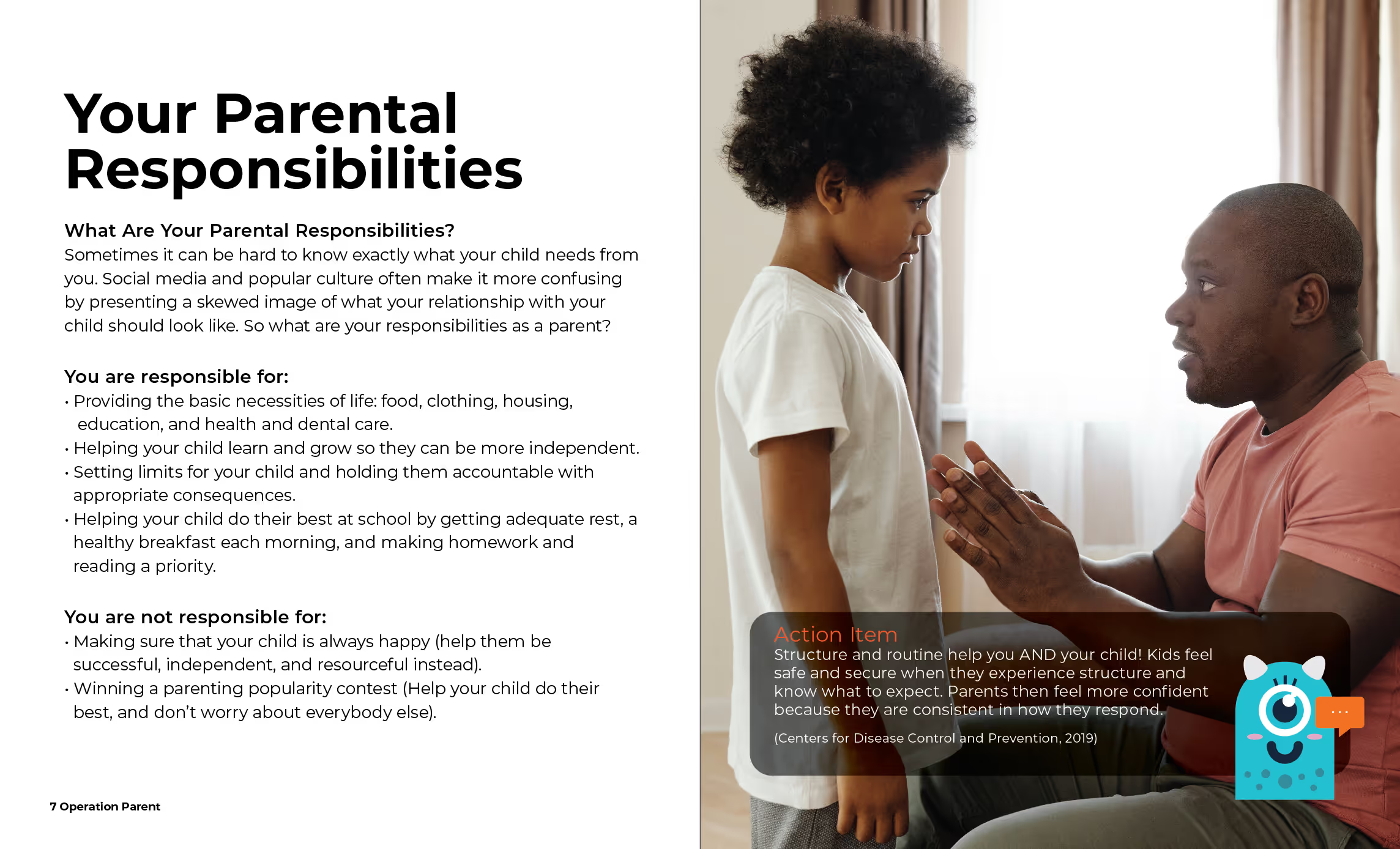

“First and foremost, we need to be the adults we want our children to be.”
-Brené Brown



handbooks: at a glance
Technology
Technology is everywhere, shaping the way kids connect, learn, and play.
This chapter gives parents insight into the digital world—from cellphones and gaming to social media and online safety—while offering strategies to set healthy boundaries and guide kids toward safe, balanced tech use.
Why it matters: Too much screen time can affect sleep, grades, and mental health, making it important to set healthy boundaries at home. It can also rob us of genuine connection and family time, which is a vital protective factor for youth.
The average teen now spends more than 8 hours a day on screens (not including schoolwork).
The average teen now spends more than 8 hours a day on screens (not including schoolwork).
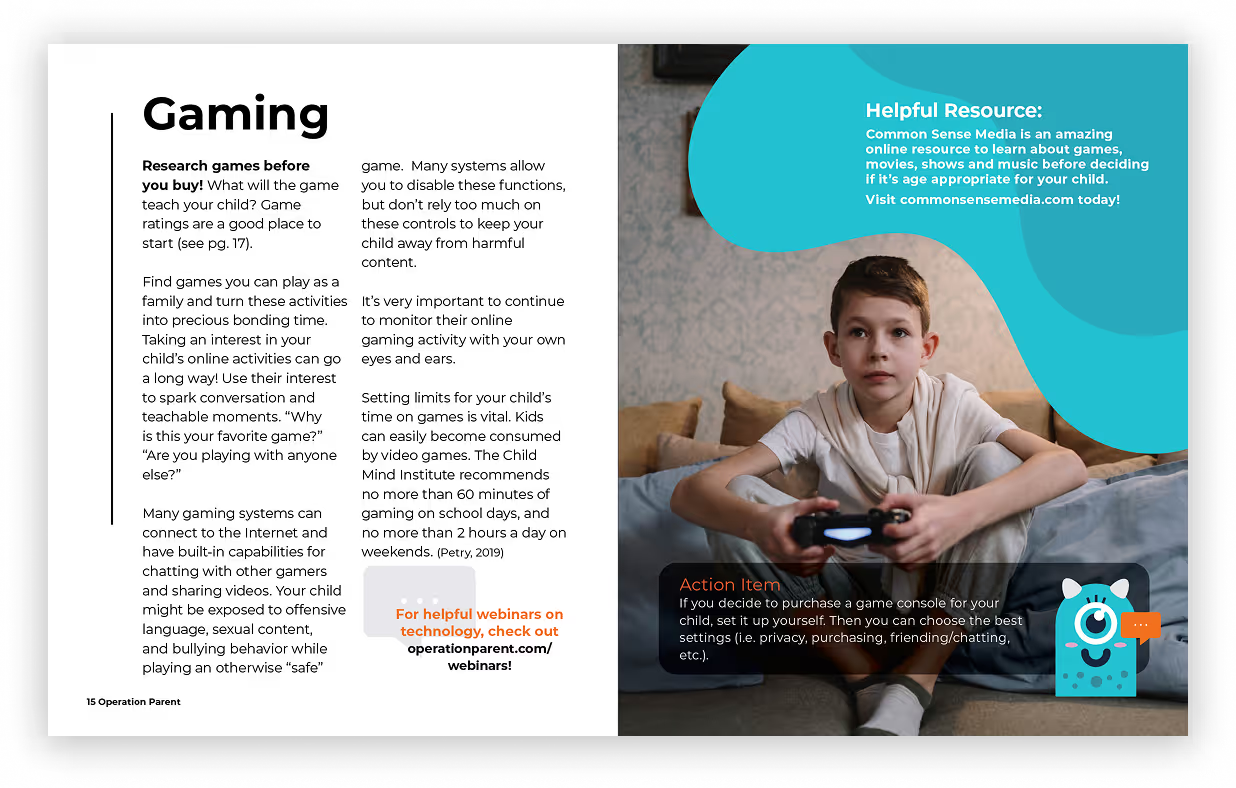
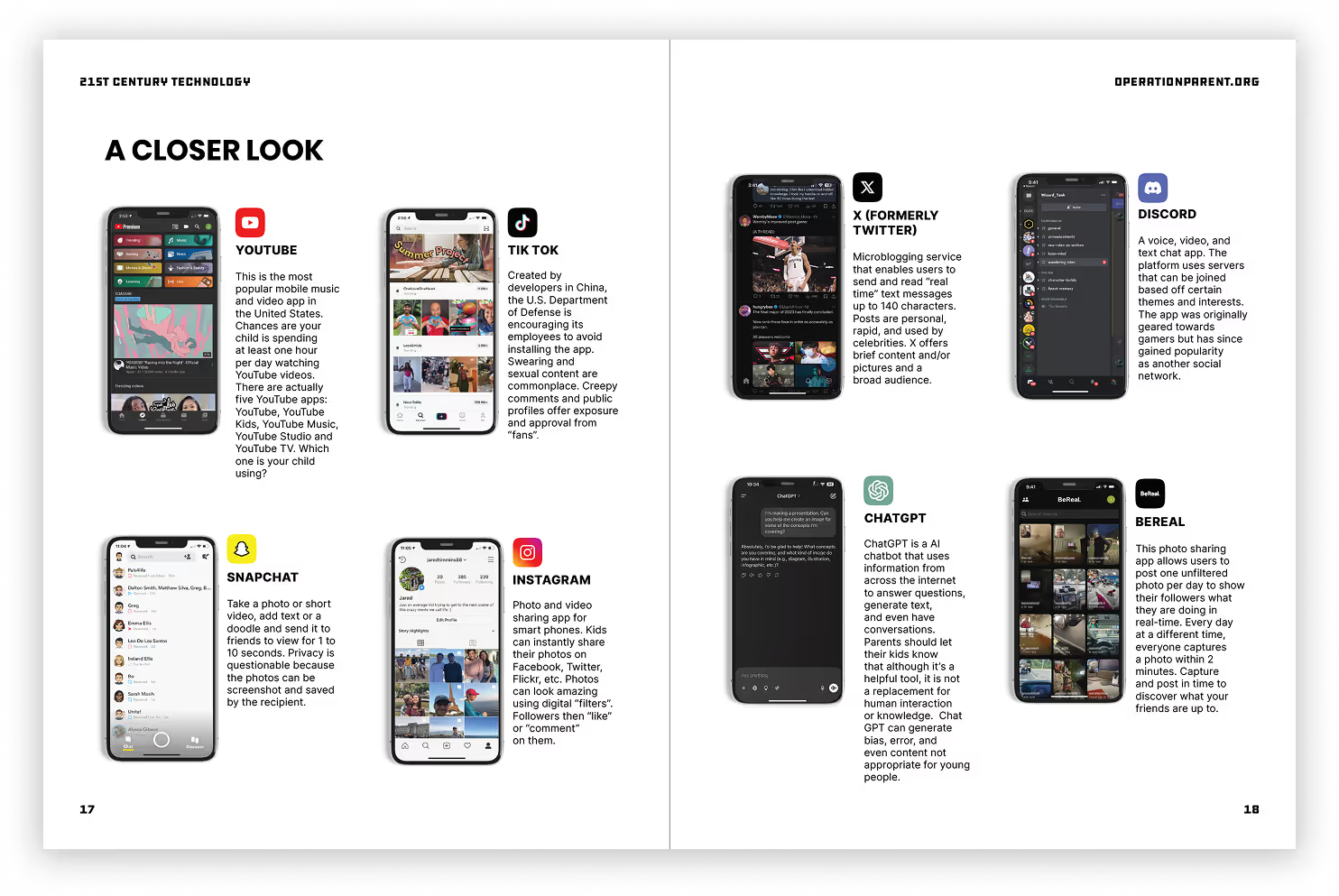



ALCOHOL, NICOTINE
& DRUGS
More adolescents use alcohol than tobacco products, nicotine, vaping, or marijuana.

Alcohol, Nicotine,& Drugs
Substances are more accessible than ever, and kids are exposed at younger ages. This chapter provides up-to-date information on alcohol, vaping, marijuana, fentanyl and other drugs. It also covers warning signs and conversation starters to help parents guide kids away from risky choices before problems start.
Why it matters: Early prevention and open conversations can dramaticallyreduce your child’s lifelong risk.
Teens who start drinking before age 15 are 5 times more likely to develop alcohol dependence as adults.

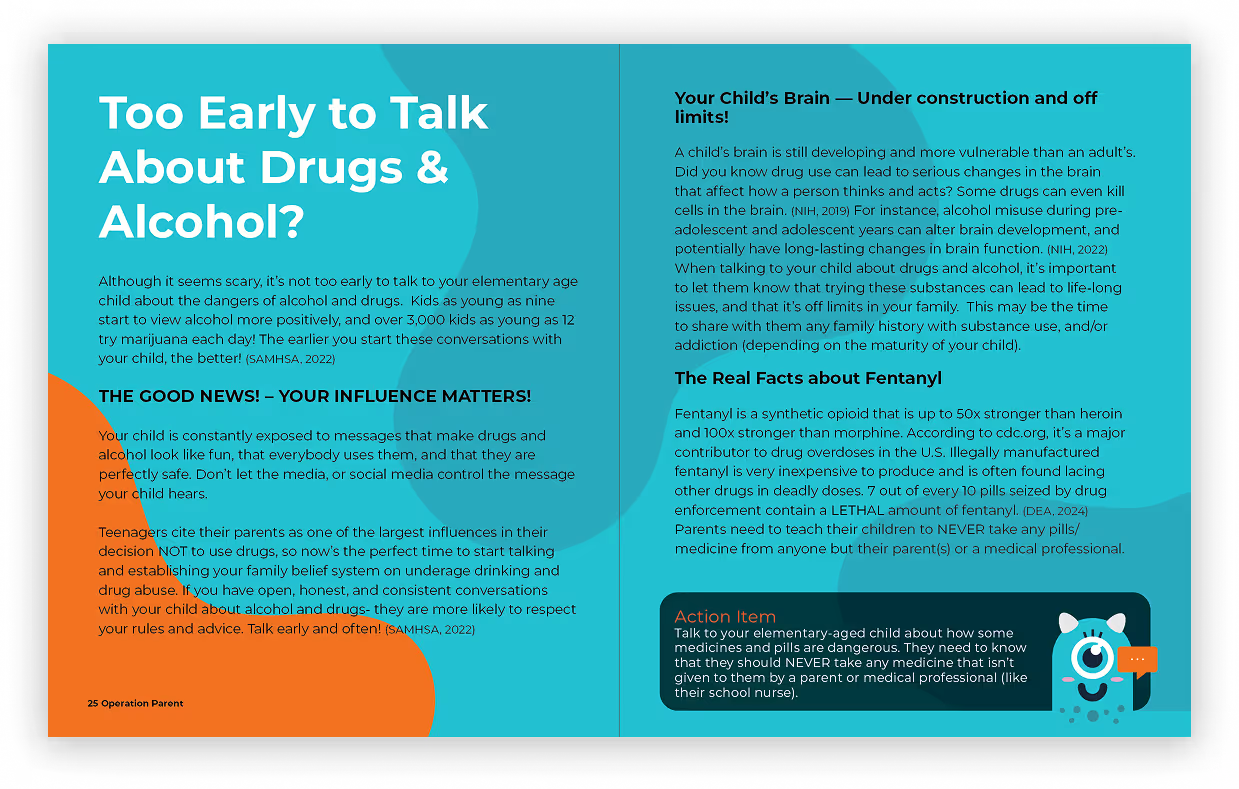




handbooks: at a glance
Emotional &
Mental Health
From anxiety and depression to everyday stress, many kids struggle with their mental well being. This chapter helps parents/caregivers recognize the signs, foster emotional resilience, and build open lines of communication. It emphasizes the importance of listening, supporting, and seeking help when needed.
1 in 3 teens report persistent feelings of sadness or hopelessness.
Why it matters: Kids need caregivers who listen, check in often, and know when to seek extra support.
Text or Dial “988” for 24/7 access to trained crisis counselors who can help.
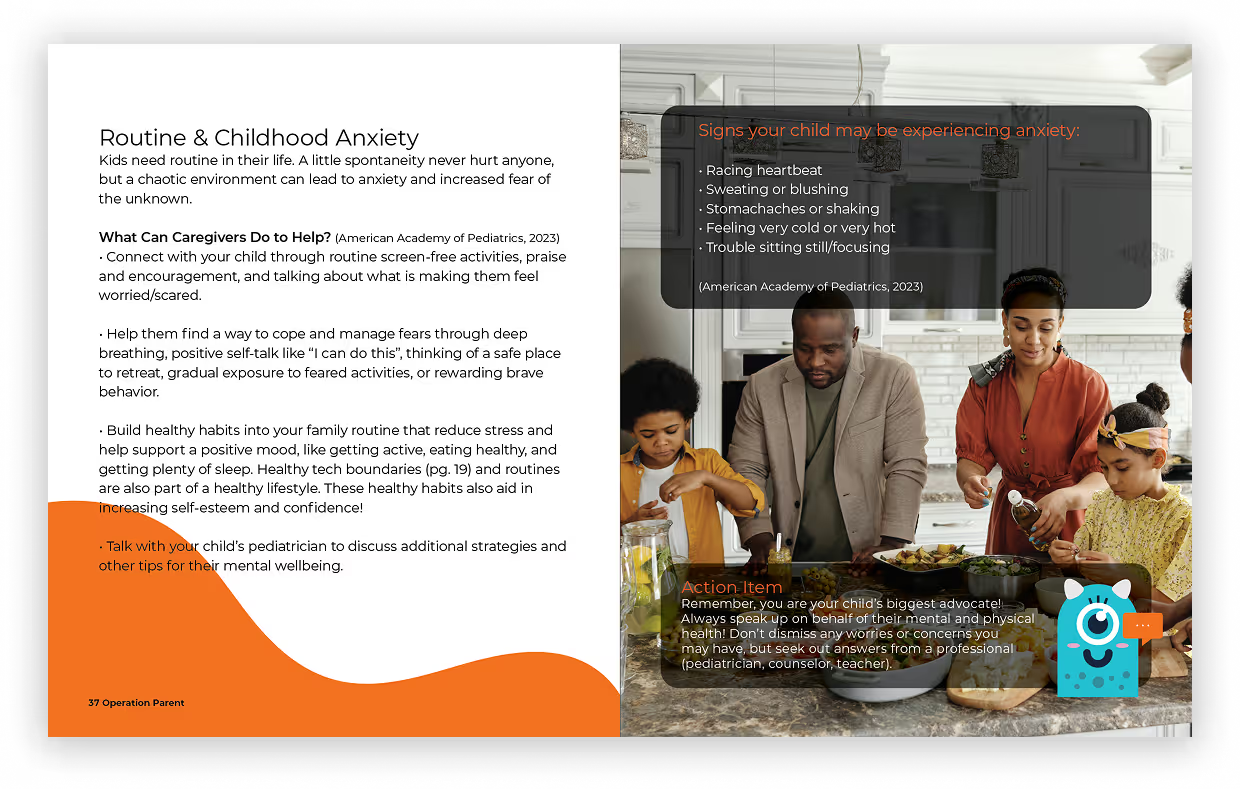





Risky Behaviors
As children grow more independent, they face new pressures around friendships, bullying, online interactions, relationships, and even decisions about sleepovers. This chapter helps parents prepare for these challenges with practical guidance on boundaries, conversations, and building trust so kids make safer, stronger choices.
Why it matters: Parents who stay connected and talk openly about onlineexperiences can help their kids feel safer and more supported.
Raising and Educating Resilient, Super-Powered Tweens & Teens
15% of high school students report being cyberbullied in the past year.
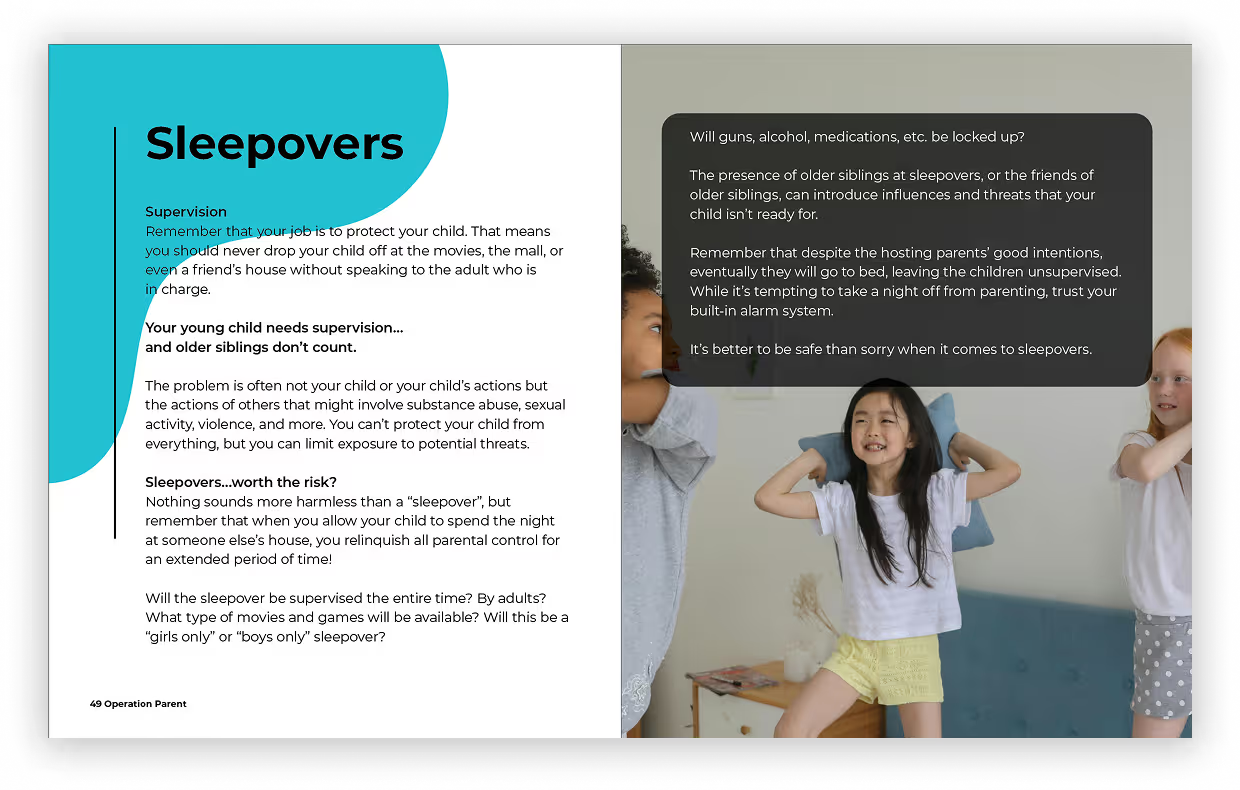




%5B90%5D.avif)



